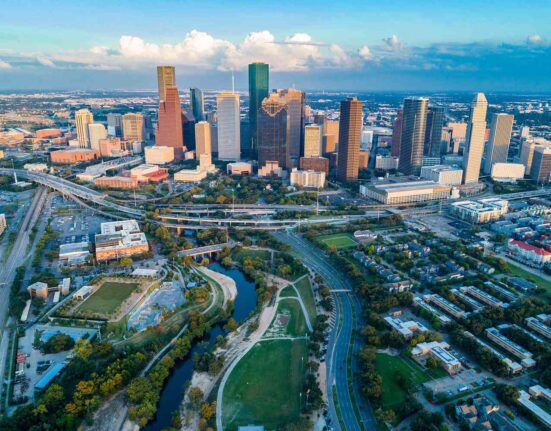Is the traveler’s gene a reality? Do you, have it? There are people who are really into travel and adventure and travel. The elsewhere is a need for them, a necessity. They were born for the journey. They have the gene of travel and adventure.
A desire to travel, always
Maybe you are part of it? Why not you? Why do some of your friends hardly ever move? There would be a story of genes, yes, science seems to explain this thirst for travel that we have.
Look at explorers and adventurers like Mike Horn. He goes on long-distance adventures around the Arctic Circle or the Equator. Without getting tired or settling despite age. No, there is always this desire, this joy of leaving to discover other playgrounds.
There are these adventurers, there are also unknown famous world travelers who always have this desire to go around the world. Have you ever wondered why I have this desire and some of my friends don’t?
Personally, I have asked myself this question before. So, who is responsible for this?
The DRD4-7R Gene of Adventure_
Here is the culprit! Finally, guilty is a point of view. I want to say earlier, here is the benefactor!
Several scientific studies have indeed pointed to this well-known DRD4 gene and one of these variants, the 7R.
The DRD4 gene is a dopamine receptor. It plays an important role in neurological functions such as memory, learning, creativity, innovation, motivation.
However, the DRD4 gene with the 7R allele would lead to a strong attraction for novelty and a taste for risk. However, traveling, discovering new cultures, a new environment, is the very definition of travel.
People with this kind of genes would also have better problem-solving skills and better tolerance to stress. Only 20 percent of the population are carriers of this gene.
So, it is still difficult to establish a reliable correlation between this gene and the fact of travelling. There is even discussion in the scientific world.
People with the DRD4 = 7R gene need more dopamine to feel a sensation of pleasure equivalent to other people, hence their desire to multiply more novelties, to go towards the unknown, to take more of risks.
But beware, the presence of this gene is not enough, it does not mean that the person who has it will be a great adventurer. No, everything is complex and there are other factors that act like certain character traits for example. Other conditions are necessary to take action.
On the other hand, we can probably think that the great explorers and adventurers have this gene. A Christopher Columbus or a Magellan probably had it…
Dromomania?
For adventurer Linda Bortoletto, there’s no doubt that she has that kind, she for whom adventure is a vital need. Because for some, not traveling and hardly possible, is really a need. And if this need is not satisfied, then we are close to suffering.
This may explain some people’s desire to travel, to move, which may seem quite extreme.
These compulsive travelers who cannot remain in place can indeed suffer from anxieties, depressive states, and addictions if circumstances impose immobility such as periods of confinement. We then speak of dromomania, a disorder designating the pathological impossibility of staying in place?
I am thinking of Andre Brougiroux who has traveled all his life and who continues at 80! I actually had his video interview at his house a few years ago.
Look on my YouTube channel, it’s amazing!
This search for novelty can be translated elsewhere than in travel. Looking for new experiences in general.
When we talk about the search for novelty, we can also talk about another area, that of romantic relationships. Doesn’t the person who multiplies the infidelities also come into this field? Do repeat infidels carry this gene?
I seem to have also read this in an article, unfortunately, I have not been able to find which one.
The gene that pushed humans to conquer the world
Research has shown that this gene is more prevalent among populations that have migrated around the world. Thus, it is found more frequently among the indigenous populations of South America than among the populations remaining in Asia. Amazing.
Also, this gene has been the engine that has allowed man to spread over the plant for millennia.
The gene that allows a longer life.
A study has also shown a link between the 7R allele and greater longevity. In the group of 300 participants aged over 90, they were 66% more than in that of 7 to 45 years to carry this variant of the DRD4 gene.
In fact, it is rather logical. It is not the gene in itself which gives a greater life expectancy, but its consequence on the way of life of the carriers of this gene.
Indeed, these are more physically active, they move and perhaps their mind remains more alert, more open and flexible. Don’t we say that traveling keeps you young? Personally, I believe it.
The current COVID period is limiting mobility and travel, it is clearly difficult for some to live. I think we all know travel fans who are bordering on the blues and look forward to traveling halfway around the world.
Maybe this is your case?
What about expatriates?
For my part, I do not have such a visceral need to travel. I can also settle into a routine for a while without travelling. My need to travel was clearly stronger 20 years ago.
This is also a point that we can emphasize: our needs change over the years, gene or not. Other reasons are involved in the procedure.
It is also true that I have spent most of the year abroad for years. Even if I don’t travel every month, I feel like I’m always on the mother daughter trips. It is this impression that many expats love.
Also, could expatriation be a good compromise for those who like novelty, who like to travel? We have indeed the two advantages: a certain stability while having living in another environment?
What do you think?
To conclude, I invite you to read two books by Sylvain Tesson, one of those adventurers who finds it difficult to stay in place:
- Small treatise on the immensity of the world
- wandering energy








376 Comments